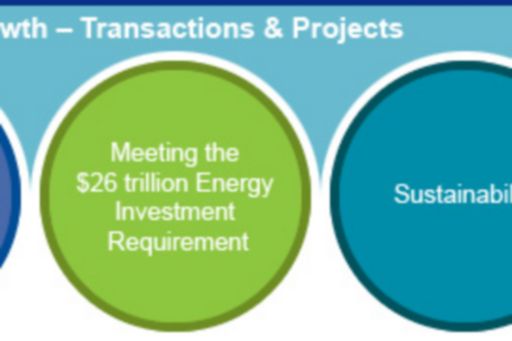Governance- Risk & Compliance
Governance – Risk & Compliance
The page explains the ENR Industry Issues and Solutions re: Governance – Risk & Compliance.
ENR Industry Issues and Solutions re: Governance – Risk & Compliance.
Governance – Legislation and Changing Regulations and Reporting
The ENR sector has long been subject to oversight, regulation and control. Such regulation is needed to ensure economic efficiency and to protect consumers, the environment, and security of supply. Most companies need to meet regulations related to health, safety, environmental and security aspects of upstream and manufacturing operations, as well as internal and external financial, corporate governance, information security and compliance aspects.
Some recent regulations are as follows:
- On 4 November 2011, the US Environmental Protection Agency (EPA) proposed changes to the air toxics standards for primary aluminum production to further reduce emissions of toxic air pollutants that are known or suspected to cause cancer and other serious health and environmental effects.
- In August 2011, the US EPA proposed regulations aimed at cutting harmful air pollution from a natural-gas drilling technique called hydraulic fracturing. The proposed regulations require reductions of smog-forming emissions at new or modified wells that are drilled using this technique.
- In April 2010, the UK implemented the Carbon Reduction Commitment (CRC), a mandatory scheme that aims to reduce CO2 emissions. CRC participants will need to buy a carbon allowance from the government for each ton of CO2 emitted. In June 2011, the UK simplified the CRC Energy Efficiency Scheme by reducing the number of fuels covered, moving to fixed-price allowance sales, simplifying the qualification process, and reducing overlap with other schemes.
KPMG’s ENR Tax Services & Solutions – Complying with increasing regulatory, government stakeholder demands
In detailing your global tax compliance requirements, KPMG firms can conduct gap analyses, help design an aggregated model, create concepts for mitigation, estimate future tax liabilities and train your staff on how to aggregate and quantify risks and compliance issues.
In terms of monitoring and reporting, KPMG firms can develop thorough global tax examination work plans, formalize appropriate global communication channels to support tax processes, build KPIs and other metrics to measure progress and controversy. KPMG member firms can help you set controls by:
- reviewing tax technical merits of planning approaches
- providing methodologies to help mitigate taxes and penalties associated with exposures, discussing key findings and recommendations
- helping ensure tax alignment with corporate goals.
KPMG firms can also assist with tax-efficient supply chain management, provide implementation and/or evaluation services, and help with documentation and reporting.
KPMG’s Global ENR Tax network includes professionals who specialize in these tax practice areas:
- Global Indirect Tax
- Global Transfer Pricing Services
- International Tax
- Dispute Resolution and Controversy Services
- Global Compliance Management Services
Governance – lobalization
Globalization of the ENR sector is enabling oil drilling and transfer of technology to foreign countries. However, due to increasing regulatory requirements to meet accountability, transparency and traceability standards, ENR companies need to report their revenues with care. The following factors also heighten the need for transparency:
- ENR companies generate huge amounts of revenues that are transferred to host nations through licenses, royalties, taxes and dividends, and countries need these transfers to invest in socio-economic development
- Many oil-producing countries have high levels of poverty and corruption
- The extraction of natural resources and related foreign direct investment can entail risk related to labor markets, the environment and local social structures
KPMG’s ENR Tax Services & Solutions - Managing a Global Tax Practice
KPMG firms can help ENR companies meet their ever increasing global and local regulatory and tax filing requirements. Our Global Compliance Management Services team uses technology and tools to offer improved insight in compliance processes, deadlines, assessments and status updates.
KPMG’s Dispute Resolution & Controversy network works with member firms’ clients to protect against, prepare for, and resolve disputes with tax authorities. We help these clients take control of the dispute resolution process to get effective results, locally and globally. Our global network of professionals are experienced in all stages of the tax dispute continuum – from protecting against disputes through pre-transaction analysis and documentation to resolution of disputes. When a dispute arises, we work with clients to resolve the dispute efficiently and collaboratively.
KPMG’s International Executive Services can assist managing employee and employer tax and immigration obligations and advise on global HR and compensation practices to improve the global mobility of skilled employees.
KPMG’s Global ENR Tax network includes professionals who specialize in these tax practice areas:
- Dispute Resolution and Controversy Services
- Global Compliance Management Services
- Global Indirect Tax
- Global Transfer Pricing Services
- International Tax
- Global Mobility Services
Governance – Security of Supply and Commodity Risk
Energy is crucial for economic growth and sustainability, and some consider it essential for prosperity. Any disruption in the energy supply can lead to serious repercussions for any economy. Concerns over the adequacy of oil and gas reserves and the reliability of energy suppliers pose huge challenges for the energy and natural resources industry.
In Europe, there is a serious concern over Russia’s dominance as the prime energy supplier. The risks involved were demonstrated by the temporary interruption of gas supply triggered by pipeline tariff disputes between Russia and Ukraine. In September 2011, the two countries initiated talks on gas supply. Though they have announced significant progress, they could not make any concrete agreements.
KPMG’s ENR Tax Services & Solutions - Security of supply
KPMG firms can help your company enter new energy markets in many ways. We offer international tax structuring advice and tax due diligence and compliance services specific to mergers and acquisitions, major energy investments, capital expenditure projects, joint ventures and operational excellence in the ENR industry.
KPMG firms can help your ENR companies optimize your multinational operations and supply chains that involve many cross-border and inter-company transactions, for example, by centralizing procurement, manufacturing, (offshore) services, and trading or sales. KPMG’s services for managing operational excellence focus on integrating business objectives with tax objectives and reviewing industry-specific tax aspects. These include manufacturing deductions, merchant trading, tax credits for energy-efficient technologies, and tax credits and deductions for research and development. We can also help assess expenditures versus capitalization of costs and the tax implications of financing instruments.
Indirect taxes are also crucial in the ENR supply chain. Our firms can help you manage your obligations related to customs, trade and excise duties, value-added tax, excise, sales and use taxes, severance and ad valorem taxes, energy taxes, and real estate (transfer) taxes.
KPMG’s Global ENR Tax network includes professionals who specialize in these tax practice areas:
Connect with us
- Find office locations kpmg.findOfficeLocations
- kpmg.emailUs
- Social media @ KPMG kpmg.socialMedia
Stay up to date with what matters to you
Gain access to personalized content based on your interests by signing up today



